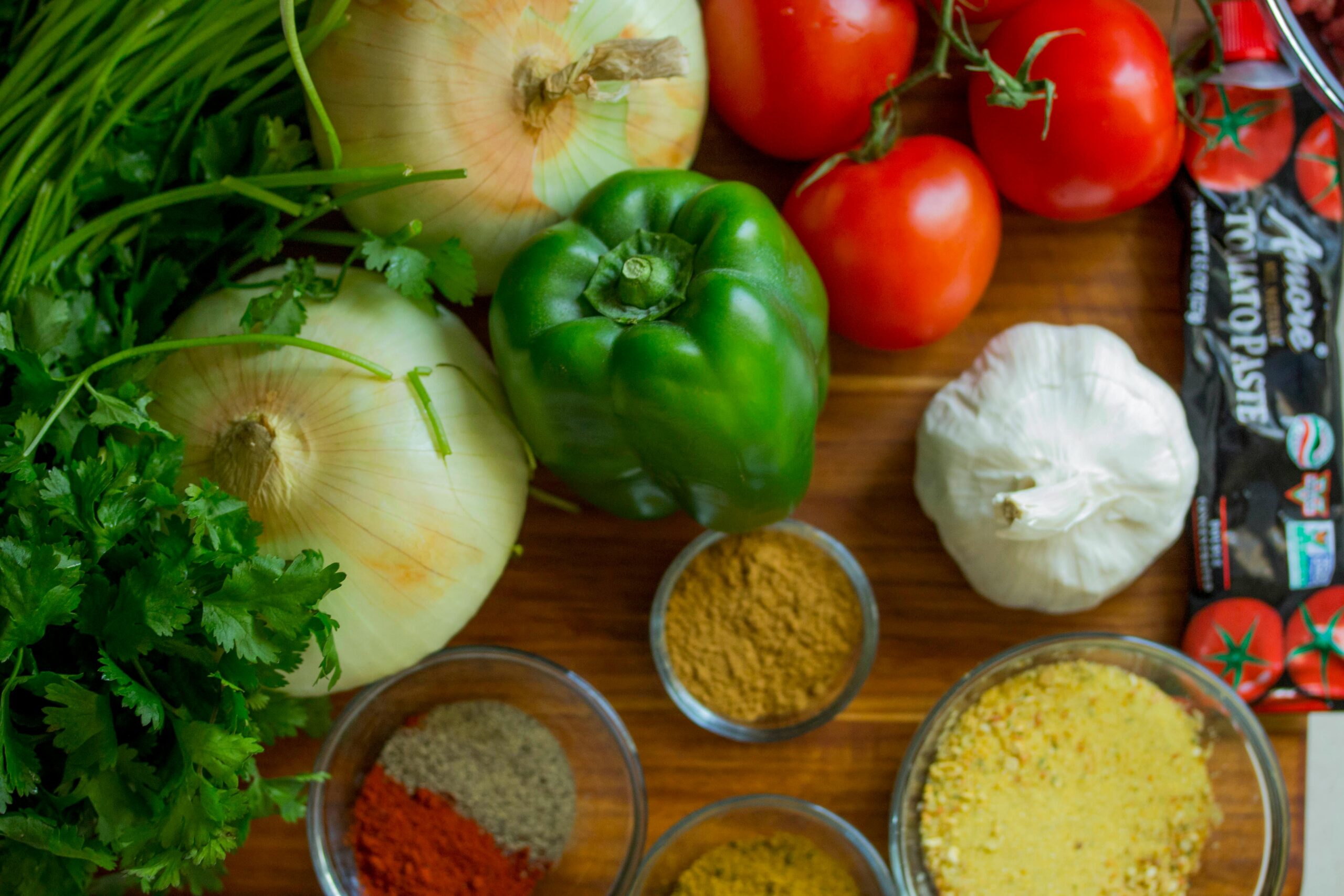
If you’re looking for a healthy eating plan that’s easy to follow and has proven health benefits, the Mediterranean diet is a great choice. The Mediterranean diet is based on the traditional eating habits of people who live in countries bordering the Mediterranean Sea. It emphasizes whole, unprocessed foods like fruits, vegetables, whole grains, and lean proteins, and limits processed and refined foods.
One of the key components of the Mediterranean diet is a focus on heart-healthy foods like olive oil, seafood, and nuts. These foods are rich in healthy fats, fiber, and antioxidants, and have been shown to help prevent heart disease. Another important aspect of the Mediterranean diet is the use of fresh herbs and spices to add flavor to meals, rather than relying on salt and processed sauces.
In this article, we’ll take a closer look at the Mediterranean diet and provide you with a shopping list of essential foods to help you get started. We’ll also share 10 easy Mediterranean recipes to help you incorporate these foods into your diet. Whether you’re looking to lose weight, improve your heart health, or just eat a more balanced diet, the Mediterranean diet is a great choice.
Understanding the Mediterranean Diet

If you’re looking for a healthy eating plan that is both delicious and nutritious, the Mediterranean diet is a great option. This diet is based on the traditional eating habits of people who live in countries bordering the Mediterranean Sea, such as Greece, Italy, and Spain.
The Mediterranean diet is a whole-foods diet that emphasizes eating fresh, whole foods like fruits, vegetables, whole grains, seafood, legumes, and nuts. It also encourages the consumption of heart-healthy foods like olive oil, which is a key component of the diet.
One of the great things about the Mediterranean diet is that it is not a restrictive diet. You don’t have to give up any particular food group, and you don’t have to count calories or track your macros. Instead, you focus on eating a variety of healthy foods in moderation.
Here are some of the key components of the Mediterranean diet:
- Olive oil: Olive oil is a staple of the Mediterranean diet and is used in place of butter or margarine. It is rich in heart-healthy monounsaturated fats and is a great source of vitamin E.
- Whole grains: Whole grains like whole wheat bread, brown rice, and quinoa are a good source of fiber and complex carbohydrates.
- Fresh fruits and vegetables: Fresh fruits and vegetables are a key component of the Mediterranean diet. They are rich in vitamins, minerals, and antioxidants.
- Seafood and fish: Seafood and fish are important sources of protein in the Mediterranean diet. They are also rich in omega-3 fatty acids, which are important for heart health.
- Legumes and nuts: Legumes like chickpeas, lentils, and beans are a good source of protein and fiber. Nuts like almonds, walnuts, and pistachios are good sources of healthy fats and protein.
- Heart-healthy foods: Other heart-healthy foods like avocados, dark chocolate, and red wine are also encouraged in moderation.
- Lean proteins: Lean proteins like chicken, turkey, and eggs are also allowed in moderation.
By following the Mediterranean diet, you can enjoy a variety of delicious and nutritious foods while also promoting heart health and overall wellness.
Essential Components of the Mediterranean Diet

The Mediterranean diet is a healthy eating pattern that emphasizes whole foods, including fresh fruits and vegetables, whole grains, seafood and fish, legumes and nuts, and lean proteins. It also emphasizes the use of olive oil as the primary source of fat. Here are the essential components of the Mediterranean diet:
Olive Oil
Olive oil is a staple of the Mediterranean diet and is used for cooking, dressing salads, and dipping bread. It is rich in monounsaturated fatty acids, which are known to be heart-healthy. In addition, it contains antioxidants that can help reduce inflammation in the body. When shopping for olive oil, look for extra-virgin olive oil, which is the least processed and most flavorful.
Whole Grains
Whole grains are a key component of the Mediterranean diet and are a great source of fiber, vitamins, and minerals. They include whole wheat, brown rice, quinoa, and barley. When shopping for grains, look for whole grains that have not been processed or refined.
Fresh Fruits and Vegetables
Fresh fruits and vegetables are a cornerstone of the Mediterranean diet and are packed with vitamins, minerals, and fiber. They also contain antioxidants that can help reduce inflammation in the body. When shopping for fruits and vegetables, choose a variety of colors to ensure you are getting a range of nutrients.
Seafood and Fish
Seafood and fish are important sources of protein in the Mediterranean diet and are rich in omega-3 fatty acids, which are known to be heart-healthy. They also contain vitamins and minerals that are essential for good health. When shopping for seafood and fish, look for fresh or frozen options that are sustainably sourced.
Legumes and Nuts
Legumes and nuts are a great source of plant-based protein, fiber, and healthy fats. They include beans, lentils, chickpeas, almonds, and walnuts. When shopping for legumes and nuts, choose unsalted options to reduce your sodium intake.
Lean Proteins
Lean proteins, such as chicken, turkey, and lean cuts of beef, are also included in the Mediterranean diet. They are a good source of protein and can be a healthy addition to your diet when consumed in moderation. When shopping for meat, choose lean cuts and avoid processed meats, which are high in sodium and unhealthy fats.
By incorporating these essential components into your diet, you can enjoy the health benefits of the Mediterranean diet and improve your overall well-being.
Creating Your Healthy Shopping List

When it comes to following the Mediterranean diet, creating a healthy shopping list is a crucial step towards achieving your health goals. The Mediterranean diet emphasizes whole, nutrient-dense foods like olive oil, whole grains, fresh fruits and vegetables, seafood and fish, legumes and nuts, and lean proteins. Here are some tips for creating your healthy shopping list:
1. Focus on Whole Foods
When shopping for the Mediterranean diet, it’s important to focus on whole, unprocessed foods. This means choosing fresh fruits and vegetables, whole grains, and minimally processed foods. Whole foods are rich in nutrients and fiber, which can help keep you feeling full and satisfied.
2. Stock Up on Olive Oil
Olive oil is a staple of the Mediterranean diet and is used in many dishes. It’s rich in heart-healthy monounsaturated fats and antioxidants, which can help reduce inflammation and lower your risk of chronic diseases. When shopping for olive oil, look for extra-virgin olive oil, which is the least processed and most nutrient-dense.
3. Choose Heart-Healthy Foods
The Mediterranean diet is known for its heart-healthy benefits, so it’s important to choose foods that support heart health. This includes foods like nuts, fatty fish, and whole grains. These foods are rich in nutrients like omega-3 fatty acids, fiber, and antioxidants, which can help lower cholesterol and reduce your risk of heart disease.
4. Plan Your Meals
To make sure you’re getting all the nutrients you need, it’s important to plan your meals ahead of time. This can help you make sure you’re including a variety of foods and getting all the nutrients you need. To get started, try out some of these easy Mediterranean recipes:
- Greek Salad with Grilled Chicken
- Baked Salmon with Lemon and Dill
- Quinoa and Vegetable Stuffed Peppers
- Lentil and Vegetable Soup
- Grilled Chicken with Herbed Yogurt Sauce
5. Don’t Forget Lean Proteins
While the Mediterranean diet is largely plant-based, it does include lean proteins like chicken, fish, and legumes. These foods are rich in protein, which can help keep you feeling full and satisfied. When shopping for lean proteins, choose high-quality, minimally processed options.
By following these tips, you can create a healthy shopping list that supports your Mediterranean diet goals. Remember to focus on whole, nutrient-dense foods, plan your meals ahead of time, and choose heart-healthy foods like olive oil, nuts, and fatty fish.
Heart-Healthy Foods in the Mediterranean Diet

The Mediterranean diet is known for its heart-healthy benefits. It is rich in healthy fats, fiber, vitamins, and minerals that support heart health. Here are some heart-healthy foods that you can include in your Mediterranean diet shopping list:
Olive Oil
Olive oil is a staple in the Mediterranean diet and is a great source of healthy monounsaturated fats. It is also rich in antioxidants that help reduce inflammation and protect against heart disease. Use olive oil as a base for salad dressings, marinades, and sautéing vegetables.
Whole Grains
Whole grains like brown rice, quinoa, and whole wheat pasta are rich in fiber, which helps reduce cholesterol levels and lower the risk of heart disease. They are also a good source of vitamins and minerals that support heart health. Swap refined grains with whole grains in your meals to boost your heart health.
Fresh Fruits and Vegetables
Fresh fruits and vegetables are packed with vitamins, minerals, and antioxidants that protect against heart disease. They are also low in calories and rich in fiber, which helps maintain a healthy weight. Include a variety of colorful fruits and vegetables in your meals to get the most health benefits.
Seafood and Fish
Seafood and fish are rich in omega-3 fatty acids, which help reduce inflammation and protect against heart disease. They are also a good source of protein and other essential nutrients. Include fish like salmon, sardines, and tuna in your meals at least twice a week to support heart health.
Legumes and Nuts
Legumes like lentils, chickpeas, and beans are rich in fiber, protein, and other essential nutrients that support heart health. Nuts like almonds, walnuts, and pistachios are rich in healthy fats, fiber, and antioxidants that protect against heart disease. Include legumes and nuts in your meals as a source of protein and healthy fats.
Lean Proteins
Lean proteins like chicken, turkey, and lean cuts of beef are a good source of protein without the added saturated fat. They are also rich in essential nutrients like iron and zinc that support heart health. Choose lean proteins instead of red meat to reduce the risk of heart disease.
Including these heart-healthy foods in your Mediterranean diet shopping list can help support heart health and reduce the risk of heart disease.
10 Easy Mediterranean Recipes

If you’re looking to incorporate the Mediterranean diet into your lifestyle, you’ll be happy to know that there are plenty of delicious and easy recipes to choose from. Here are ten recipes to get you started:
1. Greek Salad
A classic Greek salad is a simple and refreshing way to get your daily dose of veggies. Just chop up some fresh tomatoes, cucumbers, and bell peppers, and toss them with some feta cheese, olives, and a simple vinaigrette made with olive oil, lemon juice, and herbs.
2. Hummus
Hummus is a staple in the Mediterranean diet, and for good reason. It’s a delicious and healthy dip that’s made from chickpeas, tahini, olive oil, and spices. Serve it with pita bread or fresh veggies for a quick and easy snack.
3. Grilled Chicken Kebabs
Grilled chicken kebabs are a great way to get your protein fix while still sticking to the Mediterranean diet. Simply marinate some chicken in olive oil, lemon juice, and herbs, and thread it onto skewers with some veggies like bell peppers and onions.
4. Baked Fish
Seafood is a big part of the Mediterranean diet, and baked fish is a simple and healthy way to enjoy it. Just season some fresh fish fillets with herbs and lemon, and bake them in the oven for a quick and easy dinner.
5. Greek Yogurt Parfait
Greek yogurt is a great source of protein and calcium, and it’s a staple in the Mediterranean diet. To make a quick and easy breakfast or snack, layer some Greek yogurt with fresh fruit, nuts, and a drizzle of honey.
6. Shakshuka
Shakshuka is a popular Mediterranean breakfast dish that’s made with eggs, tomatoes, and spices. It’s a hearty and flavorful way to start your day, and it’s easy to make in just one skillet.
7. Lentil Soup
Lentil soup is a classic Mediterranean dish that’s packed with protein and fiber. Just simmer some lentils with veggies like carrots, onions, and celery, and season it with herbs and spices like cumin and coriander.
8. Stuffed Grape Leaves
Stuffed grape leaves, or dolmas, are a popular Mediterranean appetizer that’s made with rice, herbs, and sometimes meat. They’re a great way to get your fill of veggies and whole grains, and they’re also fun to make at home.
9. Tzatziki
Tzatziki is a creamy and tangy dip that’s made with Greek yogurt, cucumbers, and herbs. It’s a great accompaniment to grilled meats and veggies, and it’s also delicious spread on sandwiches or wraps.
10. Mediterranean Quinoa Salad
Quinoa is a great source of protein and fiber, and it’s a staple in the Mediterranean diet. To make a quick and easy quinoa salad, just toss some cooked quinoa with fresh veggies like tomatoes and cucumbers, and dress it with a simple vinaigrette made with olive oil and lemon juice.
Incorporating Mediterranean Foods into Your Diet
The Mediterranean diet is a healthy and sustainable way of eating that emphasizes whole, minimally processed foods. It is rich in heart-healthy fats, fiber, vitamins, and minerals, and has been associated with numerous health benefits, including a reduced risk of heart disease, diabetes, and cancer.
To incorporate Mediterranean foods into your diet, start by stocking up on healthy staples. Olive oil, whole grains, fresh fruits and vegetables, seafood and fish, legumes and nuts, and lean proteins are all essential components of the Mediterranean diet.
Here are some tips for incorporating these foods into your meals:
- Use olive oil as your primary source of fat. It is rich in monounsaturated fats, which have been shown to reduce inflammation and improve heart health. Use it for cooking, salad dressings, and dips.
- Choose whole grains over refined grains. Whole grains are rich in fiber, which can help you feel full and satisfied. Try brown rice, quinoa, whole-grain bread, and whole-grain pasta.
- Eat plenty of fresh fruits and vegetables. They are packed with vitamins, minerals, and antioxidants. Aim for a variety of colors and types, and try to eat them raw or lightly cooked.
- Include seafood and fish in your diet. They are rich in omega-3 fatty acids, which can help reduce inflammation and improve heart health. Try salmon, tuna, sardines, and shrimp.
- Add legumes and nuts to your meals. They are rich in protein, fiber, and healthy fats. Try chickpeas, lentils, almonds, and walnuts.
- Choose heart-healthy foods. These include avocados, dark chocolate, and red wine in moderation.
Incorporating Mediterranean foods into your diet can be easy and delicious. Try these 10 easy Mediterranean recipes to get started:
- Greek Salad with Grilled Chicken
- Mediterranean Stuffed Peppers
- Lemon-Garlic Shrimp and Vegetables
- Quinoa Tabbouleh Salad
- Baked Salmon with Herbs
- Hummus and Vegetable Wrap
- Greek Yogurt Parfait with Berries and Granola
- Roasted Vegetable and Chickpea Bowl
- Whole-Grain Pasta with Tomato and Basil
- Grilled Chicken Kebabs with Yogurt Sauce
By incorporating these healthy and delicious foods into your diet, you can improve your health and well-being while enjoying a wide variety of flavorful and satisfying meals.
Frequently Asked Questions

What are the essential items to include on a healthy Mediterranean diet shopping list?
A healthy Mediterranean diet shopping list should include plenty of fresh fruits and vegetables, whole grains, lean proteins, legumes and nuts, and heart-healthy foods. It’s important to choose foods that are high in fiber, vitamins, and minerals, and low in saturated and trans fats. Some examples of Mediterranean diet staples include olive oil, fish, seafood, nuts, and legumes.
How can I incorporate olive oil into a Mediterranean diet meal plan?
Olive oil is a key component of the Mediterranean diet and can be used in a variety of ways. You can use it as a cooking oil or salad dressing, or drizzle it over roasted vegetables or grilled fish. It’s important to choose extra-virgin olive oil, which is the least processed and contains the most nutrients.
Which whole grains are most beneficial in a Mediterranean diet?
Whole grains are an important part of a healthy Mediterranean diet and can include options like brown rice, quinoa, whole wheat bread, and barley. These grains are high in fiber, vitamins, and minerals, and can help keep you feeling full and satisfied.
What types of seafood and fish are recommended for a heart-healthy Mediterranean diet?
Seafood and fish are excellent sources of protein and heart-healthy omega-3 fatty acids. Some recommended options for a Mediterranean diet include salmon, tuna, sardines, and mackerel. It’s important to choose wild-caught fish whenever possible, as these tend to have lower levels of contaminants.
How can I select the best fresh fruits and vegetables for a Mediterranean diet?
When selecting fresh fruits and vegetables for a Mediterranean diet, it’s important to choose a variety of colors and types. Some good options include leafy greens, tomatoes, peppers, cucumbers, berries, and citrus fruits. Look for produce that is in season and locally grown whenever possible.
What are some easy Mediterranean recipes that incorporate lean proteins?
There are many easy Mediterranean recipes that incorporate lean proteins, such as grilled chicken or fish, lentil soup, or roasted chickpeas. Other options include Greek salad with feta cheese, hummus with veggies, or a quinoa and vegetable stir-fry. Experiment with different recipes and ingredients to find what works best for you.



